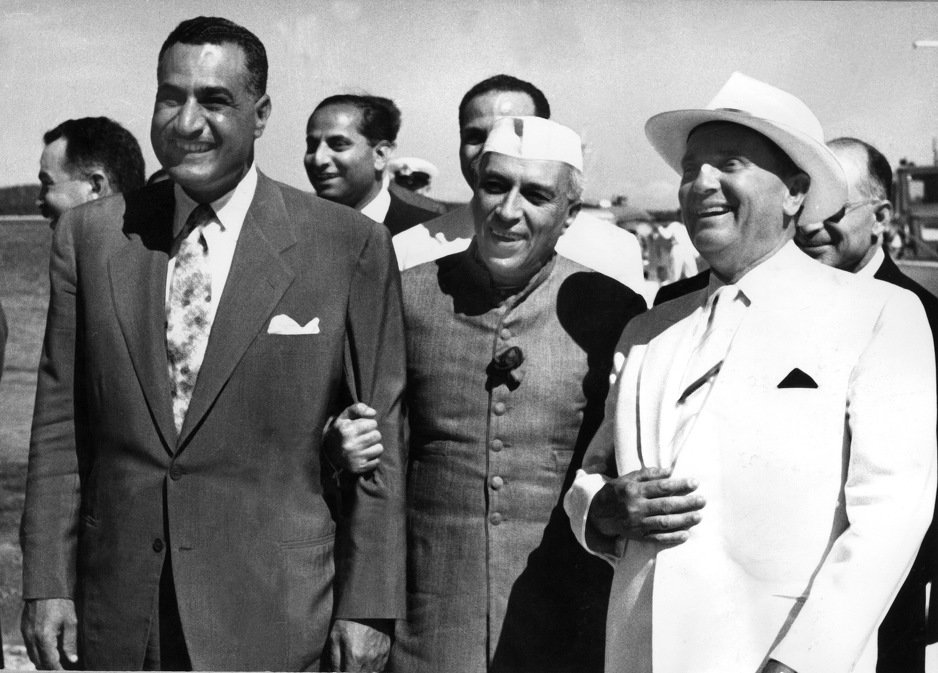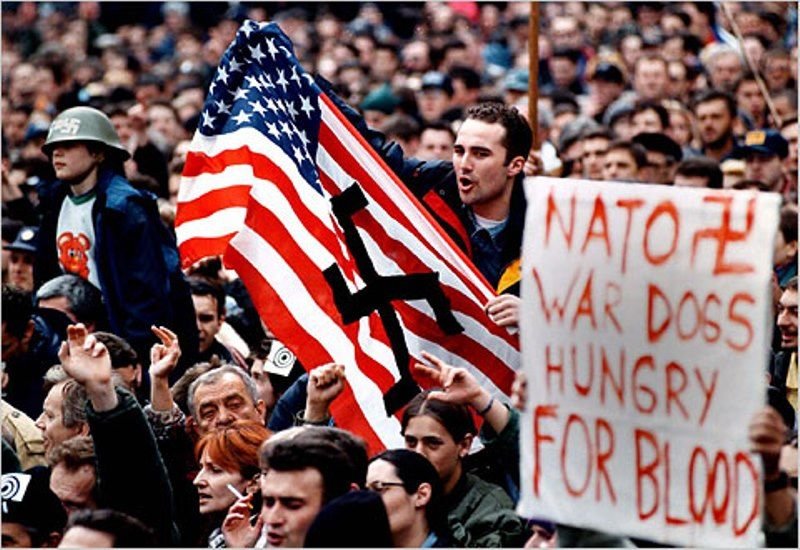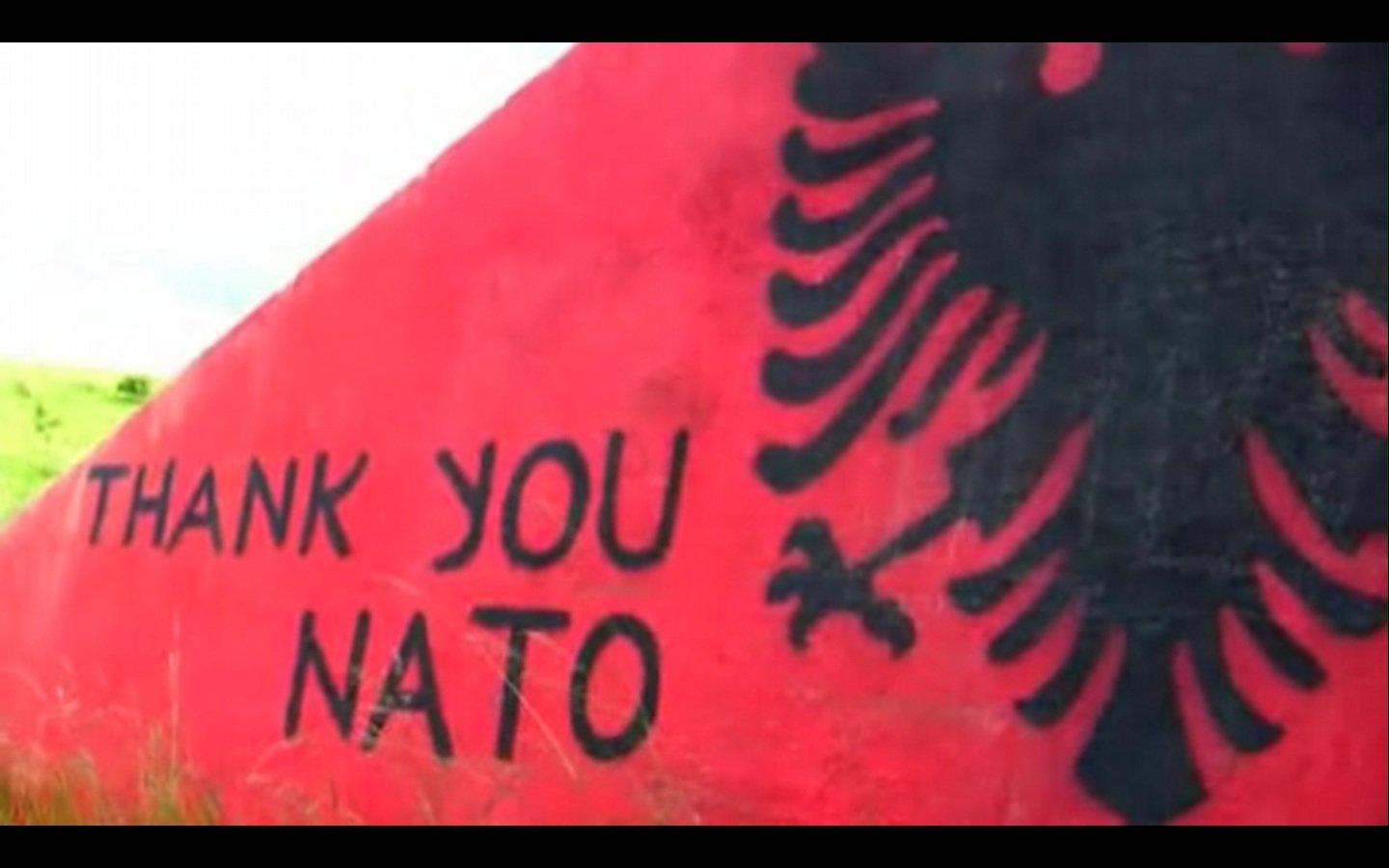Det socialistiske Yugoslavien var i tiden efter anden verdenskrig noget af en europæisk succeshistorie, og det var denne velstand, som fik vestens etablerede politiske magthavere til at søge landets opdeling, understreger den amerikanske, politiske analytiker Phil Bulter.
"Kan du forestille dig Europa i dag med Yugoslavien som en nøglespiller blandt nationerne? Det kan jeg. Yugoslavien var faktisk et af de største kulturelle og menneskelige eksperimenter i historien. Dannet i den smeltedigel, som var konflikten mellem det Østrig-Ungarske Imperium og det Ottomanske rige, blandede Yugoslavien folk sammen fra begge kulturer og på måder, som ikke er set siden Alexander den Stores assimilation af folkeslag efter enorme erobringer," skriver Butler i sin artikel i New Eastern Outlook.
Den politiske analytiker understreger, at staten var bygget på ideen om, at de sydlige slaver ikke burde være et svagt og delt folk.
Kommentar: Delvist oversat af Sott.net Yugoslavia, interrupted: A European success story ruined by NATO invasion
Butler calls attention to the fact that between 1960 and 1980 Yugoslavia boasted one of the most vigorous growth rates in the world with its free medical care and education, a guaranteed right to a job, one-month vacation with pay, decent standards of living and a literacy rate of over 90 percent.
The Yugoslavia GDP in 1991 positioned the country as 24th among world nations, the analyst stresses.
Furthermore, Yugoslavia had been struggling for the Non-Aligned Movement's ideals, summoned by Cuba's Fidel Castro as:
"The national independence, sovereignty, territorial integrity and security of non-aligned countries [in their] struggle against imperialism, colonialism, neo-colonialism, racism, and all forms of foreign aggression, occupation, domination, interference or hegemony as well as against great power and bloc politics."

"The county could not be allowed to compete with Germany, France, and especially Britain, and the London and Luxembourg bankers could not extract their billions in a socialistic system. Yugoslavia had to die, and the Reagans, the Bush family, and Clintons helped make it happen," Butler narrates, citing Michael Parenti, Visiting Fellow at the Institute for Policy Studies in Washington DC.
Parenti elaborated that Washington's ultimate goal was to transform Yugoslavia into a Third World region. The plan envisaged splitting the nation up, opening its economy to Western corporatocracy and bankers, and dismantling Yugoslavia's industrial sector so that the nation would not be able to compete with Western manufacturers. In this context the Yugoslav population would become a cheap labor pool.
"Does this strategy sound familiar? Remember the Rand Corporation plan for Syria. Were Ukraine, Donbass, and Crimea understood before the Euromaidan? What is the plan for Russia? This is where the metal meets the meat my friends," Butler emphasizes.
The analyst points out a surprising similarity between the propaganda campaign kicked off by NATO members before launching their deadly strikes against Yugoslavia and their narrative on the eve of the invasion of Iraq or Libya.
The Clinton administration's bombing campaign aimed at carving Kosovo out from Serbia was later dubbed "the most important precedent, supporting the legitimacy of unilateral humanitarian intervention" by Fernando R. Teson, an Argentine-American legal academic, known for his contribution to the law of humanitarian interventions.
So, has NATO's plan really worked? Yes, indeed.
Butler emphasizes that Bosnia and Herzegovina now ranks 112th economically, and conditions are worsening; Croatia is currently 76th, but Bloomberg names the country one of the ten worst on Earth; Macedonia ranks 130th; Montenegro is 149th among world nations; Serbia is ranked 87th in GDP; Slovenia ranks 81st in GDP.
As for the Kosovo region, carved out from Serbia, it has lately been labeled as a "mafia state."
"With an unemployment rate of 35 percent, Kosovo is wracked by persistent outbreaks of terrorism, crime, and political violence," US writer Jonathan Marshall notes in his article for Consortiumnews.com.
By no means can former Yugoslavian parts be considered competitors to major EU states.
Furthermore, NATO is swallowing the states one by one. Montenegro began accession talks with NATO on February 15.
On February 12 Serbian lawmakers ratified a diplomatic immunity agreement and logistical support for NATO representatives. Several days later Serbian President Tomislav Nikolic signed a confirmation of the country's cooperation plan with the alliance. The move prompted Serbian patriotic activists to hold peaceful demonstrations in Belgrade against the country's cooperation with NATO.
"And as I type these final letters, I think about what the courageous and strong people of Yugoslavia might have won had their destinies not been interrupted by outsiders," Butler concludes.





Læserkommentarer
dig vores Nyhedsbrev